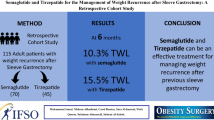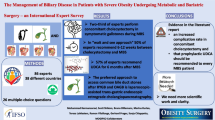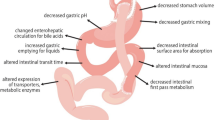Abstract
Chemotherapy and radiotherapy offer little benefit to patients with advanced pancreatic cancer. Eicosapentaenoic acid (EPA) has anticancer effects both in vitro and in animal models. The dose of EPA that can be administered to cancer patients has previously been limited by the low purity of available preparations and the tolerability of large capsules. A high-purity preparation of EPA as a 20% oil-in-water diester emulsion allowed a small study of the tolerance, incorporation, and effects of EPA in high doses in five patients with advanced pancreatic cancer. Patients underwent assessment at baseline and every 4 wk thereafter. All patients managed to tolerate a dose providing 18 g EPA per day, with doses between 9 and 27 g daily being taken for at least a month. Dosage was limited by a sensation of fullness, cramping abdominal pain, steatorrhea, and nausea. All such symptoms were controlled by dose reduction or pancreatic enzyme supplements. No other adverse effects attributable to the trial agent were observed. Plasma phospholipid EPA content increased from around 1% at baseline to 10% at 4 wk and 20% at 8 wk. Incorporation of EPA into red blood cell phospholipids reached levels of around 10%. The present study has shown that a novel, high-purity, EPA diester emulsion can be tolerated at a dose providing around 18 g EPA per day with side-effects being easily controlled. The acceptibility of large doses of oral EPA should allow larger controlled clinical studies into potential anticancer effects of EPA.
Similar content being viewed by others
Abbreviations
- DHA:
-
docosahexaenoic acid
- EPA:
-
eicosapentaenoic acid
References
Bégin, M.E., Ells, G., Das, U.N., and Horrobin, D.F. (1986) Differential Killing of Human Carcinoma Cells Supplemented with n−3 and n−6 Polyunsaturated Fatty Acids, J. Natl. Cancer Inst. 77, 1053–1062.
Mengeaud, V., Nano, J.L., Fournel, S., and Rampal, P. (1992) Effects of Eicosapentaenoic Acid, Gamma-linolenic Acid and Prostaglandin E1 on Three Human Colon Carcinoma Cell Lines, Prostaglandins Leukotrienes Essent. Fatty Acids 47, 313–319.
Falconer, J.S., Ross, J.A., Fearon, K.C.H., Hawkins, R.A., O'Riordain, M.G., and Carter, D.C. (1994) Effect of Eicosapentaenoic Acid and Other Fatty Acids on the Growth in vitro of Human Pancreatic Cancer Cell Lines, Br. J. Cancer 69, 826–832.
McMillan, D.N., Murray, A., Noble, B.S., Purasiri, P., Heys, S.D., and Eremin, O. (1994) Differential Responses of Human Solid Tumour Cells in vitro to Essential Fatty Acids, Eur. J. Surg. Oncol. 20, 104–105.
Pritchard, G.A., Jones, D.L., and Mansel, R.E. (1989) Lipids in Breast Carcinogenesis, Br. J. Surg. 76, 1069–1073.
Gonzalez, M.J., Schemmel, R.A., Dugan, L., Gray, J.I., and Welsch, C.W. (1993) Dietary Fish Oil Inhibits Human Breast Carcinoma Growth: A Function of Increased Lipid Peroxidation, Lipids 28, 827–832.
Rose, D.P., Connolly, J.M., Rayburn, J., and Coleman, M. (1995) Influence of Diets Containing Eicosapentaenoic or Docosahexaenoic Acid on Growth and Metastasis of Breast Cancer Cells in Nude Mice, J. Natl. Cancer Inst. 87, 587–592.
Hardman, W.E., Barnes, C.J., Grant, W., Knight, C.W., and Cameron, I.L. (1995) A High Fish Oil Diet Supplemented with Ferric Citrate Safely Inhibits Primary and Metastatic Human Breast Carcinoma Growth in Nude Mice, Proc. Am. Assoc. Cancer Res. 36, 114.
Senzaki, H., Iwamoto, S., Ogura, E., Kiyozuka, Y., Arita, S., Kurebayashi, J., Takada, H., Hioki, K., and Tsubura, A. (1998) Dietary Effects of Fatty Acids on Growth and Metastasis of KPL-1 Human Breast Cancer Cells in vivo and in vitro, Anticancer Res. 18, 1621–1628.
de Bravo, M.G., de Antueno, R.J., Toledo, J., De Tomás, M.E., Mercuri, O.F., and Quintans, C. (1991) Effects of an Eicosapentaenoic and Docosahexaenoic Acid Concentrate on a Human Lung Carcinoma Grown in Nude Mice, Lipids 26, 866–870.
Maehle, L., Eilertsen, E., Mollerup, S., Schønberg, S., Krokan, H.E., and Haugaen, A. (1995) Effects of n−3 Fatty Acids During Neoplastic Progression and Comparison of in vitro and in vivo Sensitivity of Two Human Tumour Cell Lines, Br. J. Cancer 71, 691–696.
Karmali, R.A., Reichel, P., Cohen, L.A., Terano, T., Hirai, A., Tamura, Y., and Yoshida, S. (1987) The Effects of Dietary ω-3 Fatty Acids on the DU-145 Transplantable Human Prostatic Tumor, Anticancer Res. 7, 1173–1180.
Sakaguchi, M., Rowley, S., Kane, N., Imray, C., Davies, A., Jones, C., Newbold, M., Keighley, M.R.B., Baker, P., and Neoptolemos, J.P. (1990) Reduced Tumor Growth of the Human Colonic Cancer Cell Lines COLO-320 and HT-29 in vivo by Dietary n−3 Lipids, Br. J. Cancer 62, 742–747.
Calder, P.C., Davis, J., Yaqoob, P., Thies, F., and Newsholme, E.A. (1998) Dietary Fish Oil Suppresses Human Colon Tumour Growth in Athymic Mice, Clin. Sci. 94, 303–311.
Wigmore, S.J., Ross, J.A., Falconer, J.S., Plester, C.E., Tisdale, M.J., Carter, D.C., and Fearon, K.C.H. (1996) The Effect of Polyunsaturated Fatty Acids on the Progress of Cachexia in Patients with Pancreatic Cancer, Nutrition 12 Suppl. 1, S27-S30.
Barber, M.D., Wigmore, S.J., Ross, J.A., and Fearon, K.C.H. (1997) Eicosapentaenoic Acid Attenuates Cachexia Associated with Advanced Pancreatic Cancer, Prostaglandins Leukotrienes Essent, Fatty Acids 57, 204.
Barber, M.D., Ross, J.A., Voss, A.C., Tisdale, M.J., and Fearon, K.C.H. (1999) The Effect of an Oral Nutritional Supplement Enriched with Fish Oil on Weight Loss in Patients with Pancreatic Cancer, Br. J. Cancer 81, 80–86.
Gogos, C.A., Ginopoulos, P., Salsa, B., Apostolidou, E., Zoumbos, N.C., and Kalfarentzos, F. (1998) Dietary Omega-3 Polyunsaturated Fatty Acids Plus Vitamin E Restore Immunodeficiency and Prolong Survival for Severely Ill Patients with Generalised Malignancy. A Randomised Controlled Trial, Cancer 82, 395–402.
Tisdale, M.J. (1996) Inhibition of Lipolysis and Muscle Protein Degradation by EPA in Cancer Cachexia, Nutrition 12 Suppl. 1, S31-S33.
Neoptolemos, J.P., and Kerr, D.J. (1995) Adjuvant Therapy for Pancreatic Cancer, Br. J. Surg. 82, 1012–1014.
Schnall, S.F., and Macdonald, J.S. (1996) Chemotherapy of Adenocarcinoma of the Pancreas, Semin. Oncol. 23, 220–228.
Folch, J., Lees, M., and Sloane Stanley, G.H. (1957) A Simple Method for the Isolation and Purification of Total Lipides from Animal Tissues, J. Biol. Chem. 226, 497–509.
Leaf, A., and Weber, P.C. (1988) Cardiovascular Effects of n−3 Fatty Acids, N. Engl. J. Med. 318, 549–557.
Knapp, H.R., Reilly, I.A.G., Allessandrini, P., and FitzGerald, G.A. (1986) In vivo Indexes of Platelet and Vascular Function During Fish-Oil Administration in Patients with Atherosclerosis, N. Engl. J. Med. 314, 937–942.
Knapp, H.R., and FitzGerald, G.A. (1989) The Antihypertensive Effects of Fish Oil. A Controlled Study of Polyunsaturated Fatty Acid Supplements in Essential Hypertension, N. Engl. J. Med. 320, 1037–1043.
Perez, M.M., Newcomer, A.D., Moertel, C.G., Go, V.L.W., and DiMagno, E.P. (1983) Assessment of Weight Loss, Food Intake, Fat Metabolism, Malabsorption, and Treatment of Pancreatic Insufficiency in Pancreatic Cancer, Cancer 52, 346–352.
van Howelingen, R., Nordøy, A., van der Beek, E., Houtsmuller, U., de Metz, M., and Hornstra, G. (1987) Effect of a Moderate Fish Intake on Blood Pressure, Bleeding Time, Hematology and Clinical Chemistry in Healthy Males, Am. J. Clin. Nutr. 46, 424–436.
Clarke, J.T.R., Cullen-Dean, G., Regelink, E., Chan, L., and Rose, V. (1990) Increased Incidence of Epistaxis in Adolescents with Familial Hypercholesterolemia Treated with Fish Oil, J. Pediatr. 116, 139–141.
Guffy, M.M., North, J.A., and Burns, C.P. (1984) Effect of Cellular Fatty Acid Alteration on Adriamycin Sensitivity in Cultured L1210 Murine Leukemia Cells, Cancer Res. 44, 1863–1866.
Noda, M., Tsukahara, H., and Ogata, M. (1978) Enzymic Hydrolysis of Diol Lipids by Pancreatic Lipase, Biochim. Biophys. Acta 529, 270–279.
Dyerberg, J., Bang, H.O., and Hjørne, N. (1975) Fatty Acid Composition of the Plasma Lipids in Greenland Eskimos, Am. J. Clin. Nutr. 28, 958–966.
Burns, C.P., Halabi, S., Clamon, G.H., Hars, V., Wagner, B.A., Hohl, R.J., Lester, E., Kirshner, J.J., Vinciguerra, V., and Paskett, E. (1999) Phase I Clinical Study of Fish Oil Fatty Acid Capsules for Patients with Cancer Cachexia: Cancer and Leukemia Group B Study 9473, Clin. Cancer Res. 5, 3942–3947.
von Schacky, C., and Weber, P.C. (1985) Metabolism and Effects on Platelet Function of the Purified Eicosapentaenoic and Docosahexaenoic Acids in Humans, J. Clin. Invest. 76, 2446–2450.
Author information
Authors and Affiliations
Corresponding author
About this article
Cite this article
Barber, M.D., Fearon, K.C.H. Tolerance and incorporation of a high-dose eicosapentaenoic acid diester emulsion by patients with pancreatic cancer cachexia. Lipids 36, 347–351 (2001). https://doi.org/10.1007/s11745-001-0726-4
Received:
Revised:
Accepted:
Issue Date:
DOI: https://doi.org/10.1007/s11745-001-0726-4




